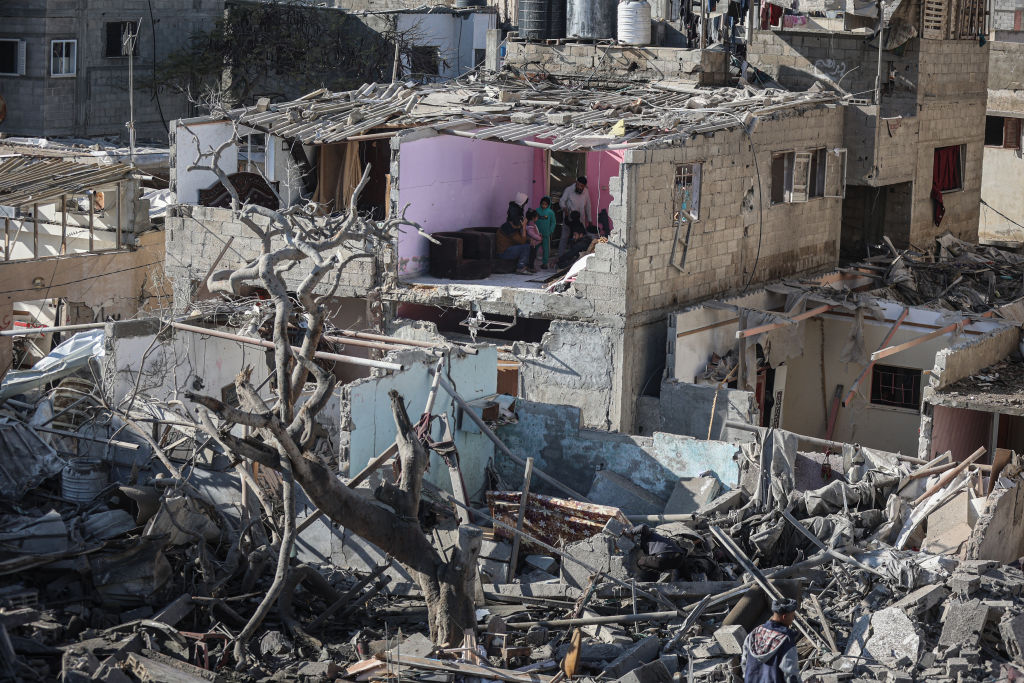Source: The Washington Post / Getty
In its wake of Israel recent airstrikes in the south Gauzethe phrase “All Eyes On Rafah” has taken social media by storm, with mixed support and criticism from users.
In the past week, the phrase “All Eyes On Rafah” has dominated social media trending topics. It was prompted by news that the Israeli military had carried out airstrikes on the town of Rafah in the southern Gaza Strip near the Egyptian border, where millions of Palestinians already displaced by Israel's ongoing conflict with the militant group Hamas have taken refuge.
An AI-generated image of dozens of scenes juxtaposed against a serene desert landscape with structures in the center spelling out the phrase has been shared more than 40 million times on Instagram alone. Many celebrities, including comedian Hasan Minhaj, have also shared the image through their social media accounts.
The origin of the phrase can be found in comments made by Richard “Rik” Peeperkorn, head of the World Health Organization's offices in Gaza and the West Bank, at a press conference as the Israel Defense Forces began to intensify their strikes in southern Gaza. . Pro-Palestinian groups and activists began using “All Eyes On Rafah” in their messaging in addition to humanitarian groups such as Oxfam. The image of artificial intelligence could have gained such traction because it's not “too dangerous or controversial,” according to social media consultant Matt Navarra in an interview with Sky News.
The current wave comes after a deadly strike on Sunday (May 26) hit a camp for displaced Palestinians, torching tents and killing 45 people, according to medics on the ground. Israeli Prime Minister Benjamin Netanyahu called it a “tragic incident” As world leaders, including UN Secretary-General Antonio Guterres, condemned the action in a post on X, earlier on Twitter saying: “This horror must stop.”
The “All Eyes On Rafah” image has drawn criticism from some online, who believe more accurate and graphic images of the violence and suffering of the 1.4 million displaced Palestinians should be shown to the public. Others think sharing AI-generated imagery is exciting “slacktivism”visibly showing support for a cause but not actually taking any real steps to help.
But others find it useful to draw more attention to the cries of the Palestinian people.
We have collected valuable responses from users on social media to provide a clearer picture of the issue below.
